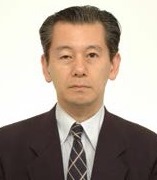Deputy Director-General for Environmental Affairs, Ministry of Economy, Trade and Industry, Japan
Hiroki Mitsumata is the Deputy Director-General for Environmental Affairs at the Ministry of Economy, Trade and Industry (METI) of Japan. He assumed this position in July 2014. In his current capacity, Mr. Mitsumata is in charge of policy towards simultaneous achievement of environmental protection and economic growth. He is also engaged in the discussion for the new international framework addressing climate change.
Throughout his twenty-seven-year career in the Japanese Government, Mr. Mitsumata has been working on a wide range of key policy issues in the areas of economy, trade, industry, energy and environment. In addition to the current position, he has had further experiences of policy-making in the
field of energy and environment, including engagement in nuclear-related policy, on both the domestic and international fronts, as the Director of the Nuclear Energy Policy Division from 2009 to 2011. He also played a central role in the fundamental reinforcement of the Act for Efficient Use of Energy in 1993. Mr. Mitsumata acted as a key policy planner in smoothing small business finance under the credit crunch from 1999 to 2002. He has been engaged in macro-economic and financial policy in the several later positions.
Mr. Mitsumata received his undergraduate degree (Bachelor of Laws) from the University of Tokyo in 1987, and his master’s degree (Master of Public Administration) from the John F. Kennedy School of Government at Harvard University in 1995. He was invited, as a visiting scholar, to the Center of Advanced Study and Research on Intellectual Property at the Law School of the University of Washington from 1993 to 1994. Also, he gave lectures on industrial policy at the Engineering Department of the University of Tokyo from 2004 to 2006. Mr. Mitsumata was dispatched to the New York Office of JETRO (Japan External Trade Organization), from 2006 to June 2009, as the Director in charge of research on trade and energy policy issues.




